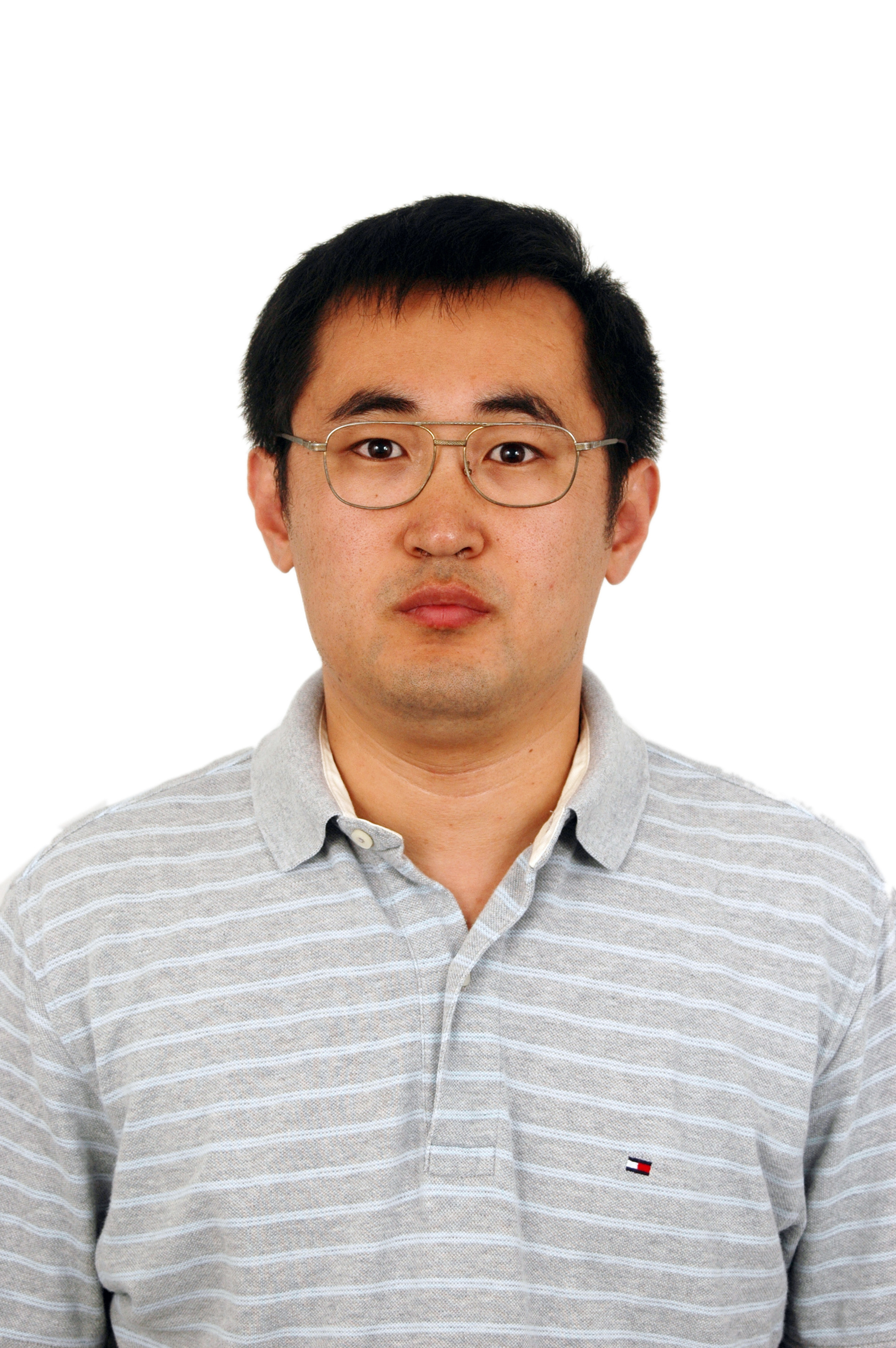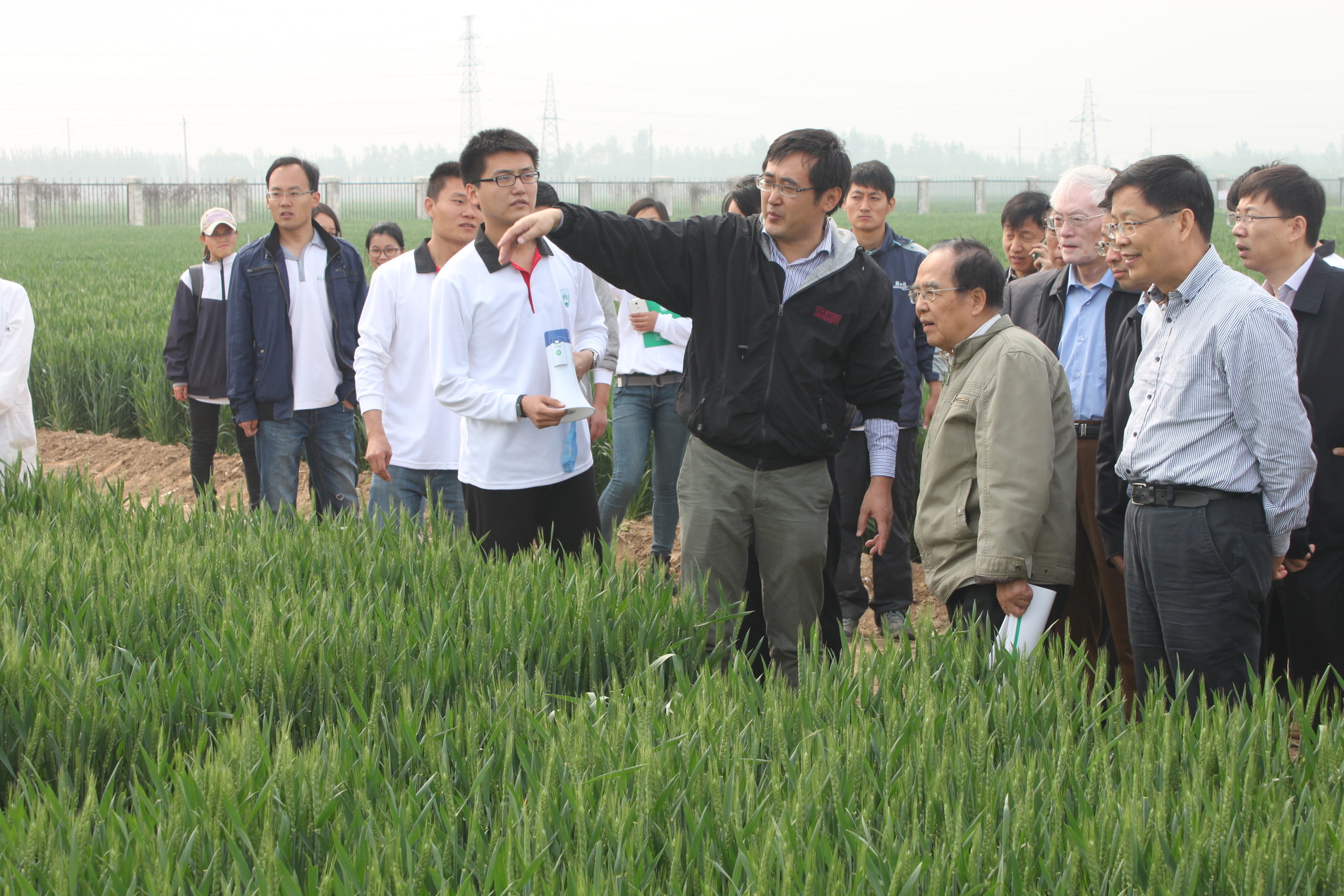
Dr. Cui

Dr. Cui working in the field
Media Resources:
Press Release
For hi-res photos, right-click on images above
Dr. Zhenling Cui
CHINA
Zhenling Cui, a researcher and faculty member at the Center for Resources, Environment and Food Security at the China Agricultural University in Beijing, has been named the 2017 recipient of the Norman Borlaug Award for Field Research and Application, Endowed by the Rockefeller Foundation. He is recognized for his scientific and extension work in improving soil health and increasing crop production through the implementation of innovative on-farm fertilizer management strategies. His work has led to improved nitrogen efficiency, resulting in higher maize and wheat yields throughout the North China Plain.
Cui, who was born in China in 1978, found his passion to develop new approaches to improving crop production methods and yields during his study of soil nutrient management and agronomy at China Agricultural University, where he received his Ph.D. degree and is now a member of the faculty. Few scientists under the age of 40 have achieved such strong impact from their research.
Since 2000, Dr. Cui has conducted research and developed an innovative yet practical extension program for smallholder farmers to achieve increases in maize and wheat productivity while maintaining environmental integrity. For many decades, farmers had been over-applying nitrogen fertilizer to their small plots in the belief that larger amounts applied at a uniform rate provided “insurance” against low yields. Through his extensive in-field experiments, Dr. Cui showed that this assumption was false and, in fact, the excess nitrogen was wasted due to leaching, denitrification, and volatilization. More importantly, overuse of fertilizer did not increase yields, but it did result in significant environmental problems, including groundwater pollution by nitrate N, surface water quality degradation, soil acidification, and air pollution.
To remedy the excessively high residual mineral nitrogen content that he discovered in the root zone of plants after harvest, Dr. Cui and his research group developed a first-of-its-kind, in-season root-zone nitrogen management system, known as IRNM, which he tested in 269 on-farm experiments. This system has significantly reduced N fertilizer application – by as much as 60 percent for wheat and 40 percent for maize – and simultaneously increased grain yields by 5 percent as compared to previously existing farming practices. Furthermore, nitrogen losses have been reduced by 73% in the wheat growing season and 43% in the maize growing season.
Like Dr. Norman Borlaug, Dr. Cui’s research and transfer of knowledge approach has been marked by dedication and persistence in understanding the on-farm experience, with the goal of helping farmers produce more food in sustainable ways. He adopted a unique hands-on approach, living and eating with the farmers for extended periods of time, studying their planting, cultivation, and harvesting practices, and undertaking thousands of face-to-face interview surveys. A hallmark of his commitment was that he remained with the farmers in their rural communities throughout the entire SARS epidemic of 2003.
Dr. Cui’s further research led to better synchrony between nitrogen supply and crop demand, with the development of systems that could improve maize production based on timely planting dates, optimal plant population, and balanced fertilization. Following this research, Dr. Cui also developed an integrated soil-crop system management (ISSM) approach, which was designed to make maximum use of solar radiation and seasonal temperatures using crop models. This system nearly doubled maize yields without any increase in nitrogen fertilizer use.
After developing his ISSM and IRNM approaches, Dr. Cui was able to propose a regional fertilizer recommendation strategy to fertilizer producers, which he called “large formula with small adjustment.” This model incorporates new technologies into commercial products and benefits fertilizer producers, while maintaining a responsible use of nitrogen. Dr. Cui’s environmentally sustainable innovations have been a critical component of China’s efforts to pursue higher grain yields, and have been widely adopted by local governments in recent years as well as in the country’s National Soil-Testing and Fertilizer Recommendation Projects.
In addition to large-scale implementation, Dr. Cui has worked exceptionally hard to ensure that his findings are accessible for use by smallholder farmers. He frequently presents lectures to farmers regarding crop management, fertilization, and planting. He has also worked on coordinating face-to-face training, technology demonstrations, and a farmer’s field school, as well as organizing agricultural technology and machinery cooperatives.
Dr. Cui has not only produced revolutionary research, he has also undertaken the honorable and humanitarian pursuit of Dr. Borlaug to “take it to the farmer.” His work has achieved putting more food on the plates of hundreds of millions of China’s farm families.


